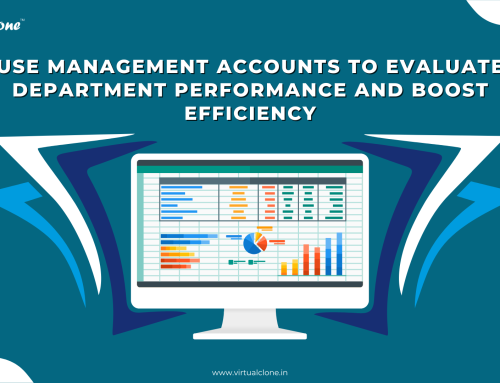What is Statutory Accounting?
Statutory Accounting involves preparing and reporting financial statements according to laws, regulations, and standards set by governing bodies like governments or regulatory authorities. The main goal is to give a true and fair view of a company’s financial health for external stakeholders such as tax authorities, regulators, and investors.
This process ensures businesses follow specific rules and present financial data consistently and transparently, building trust and accountability in the public sphere.
Key Principles of Statutory Accounting
Statutory Accounting Principles (SAP) set the guidelines businesses must follow to meet legal reporting requirements. These principles are more conservative than general standards like GAAP or IFRS. Insurance companies often apply SAP in certain jurisdictions.
SAP focuses on solvency and financial stability. It ensures companies can meet their financial obligations, especially in the insurance sector. Key principles include a cautious approach to accounting and a focus on maintaining financial strength.
- Conservatism: This principle requires recognizing potential losses or liabilities as soon as they arise. It avoids premature recognition of profits, ensuring a cautious approach to financial reporting.
- Liquidity: SAP values assets more conservatively. This approach prevents financial statements from overstating a company’s financial position.
- Asset Valuation: Assets are often valued more conservatively under SAP to ensure that the financial statements do not overstate the financial position of the company.
- Matching Principle: Recognize expenses in the same period as the revenues they help generate. This practice ensures that financial statements reflect the true financial performance.
- Admissibility: SAP does not count all assets as “admitted.” Certain illiquid or non-readily marketable assets may not be considered when assessing a company’s solvency.
The Core Pillars of Statutory Accounting: Compliance and Beyond
The core pillars ensure that companies meet the necessary legal and regulatory requirements and protect the interests of stakeholders. These core pillars typically include:
- Compliance: The most important pillar is ensuring that financial reporting complies with all legal and regulatory standards. This includes following country-specific rules such as GAAP (Generally Accepted Accounting Principles), IFRS (International Financial Reporting Standards), or local regulations.
- Accuracy & Transparency: Financial reports must provide an accurate and transparent representation of the company’s financial position. This ensures that stakeholders can trust the information presented and that the company is not hiding any risks or liabilities.
- Conservatism: As mentioned under SAP, statutory accounting follows a conservative approach. This means that potential liabilities or losses are recognized as soon as possible, and revenues are only recorded when they are assured. It’s a “safety-first” method that avoids over-optimism in financial reporting.
- Consistency: Companies are required to apply accounting methods consistently from one reporting period to another. This ensures comparability, meaning that stakeholders can compare financial statements from different years and make informed decisions based on trends and changes.
- Disclosure: Statutory accounting emphasizes the importance of full disclosure. All significant financial information, risks, liabilities, and uncertainties must be disclosed to external stakeholders. This prevents any misunderstandings and provides a clear picture of the company’s financial health.
How Statutory Accounting Can Help You Make Better Business Decisions
Statutory accounting may seem complex, but it’s simply the process of recording and reporting a business’s financial activities in line with a country’s laws and regulations. Every business, large or small, must follow statutory accounting rules to ensure transparency and fairness. Beyond being a legal requirement, statutory accounting helps you make smarter business decisions.
Here’s how:
Provides Accurate Financial Data
Statutory accounting ensures that your financial records are accurate and up-to-date. This accuracy is crucial because it gives you a clear picture of your business’s financial health. When you know exactly where your money is coming from and where it’s going, you can make informed decisions about where to invest, where to cut costs, and how to grow your business.
Statutory Accounting Helps in Identifying Trends
By regularly reviewing your statutory accounts, you can spot trends in your business’s performance. For example, you might notice that certain products are consistently selling well, or that your expenses are higher during specific months. Understanding these trends allows you to make strategic decisions, like focusing more on popular products or planning for higher expenses during certain times of the year.
Facilitates Compliance with Laws
Statutory accounting helps ensure that your business complies with financial regulations. Non-compliance can lead to penalties, fines, or even legal action, all of which can harm your business. By keeping your statutory accounts in order, you can avoid these risks and focus on running your business smoothly.
Supports Better Budgeting
When you have accurate financial data from statutory accounting, it’s easier to create realistic budgets. A good budget is essential for managing your cash flow and planning for future expenses. With statutory accounting, you can base your budget on real numbers, making it more likely that you’ll stick to it and avoid overspending.
Statutory Accounting Improves Decision-Making
Ultimately, statutory accounting provides the financial information you need to make better business decisions. Whether you’re considering a new investment, planning to expand, or thinking about hiring more staff, statutory accounts give you the data to make informed choices. This leads to better outcomes for your business in the long run.
Statutory accounting is more than just a legal requirement; it’s a powerful tool for making smarter business decisions. It provides accurate data, helps you spot trends, ensures compliance, supports budgeting and enhances decision-making. Statutory accounting can drive your business’s success.
Don’t view it merely as a regulatory obligation. Instead, see it as a way to strengthen and profit from your business. Focus on growth while we handle the complexities. Outsource to Virtual Clone, and let our experts keep you compliant and make better business decisions. Contact us today!






